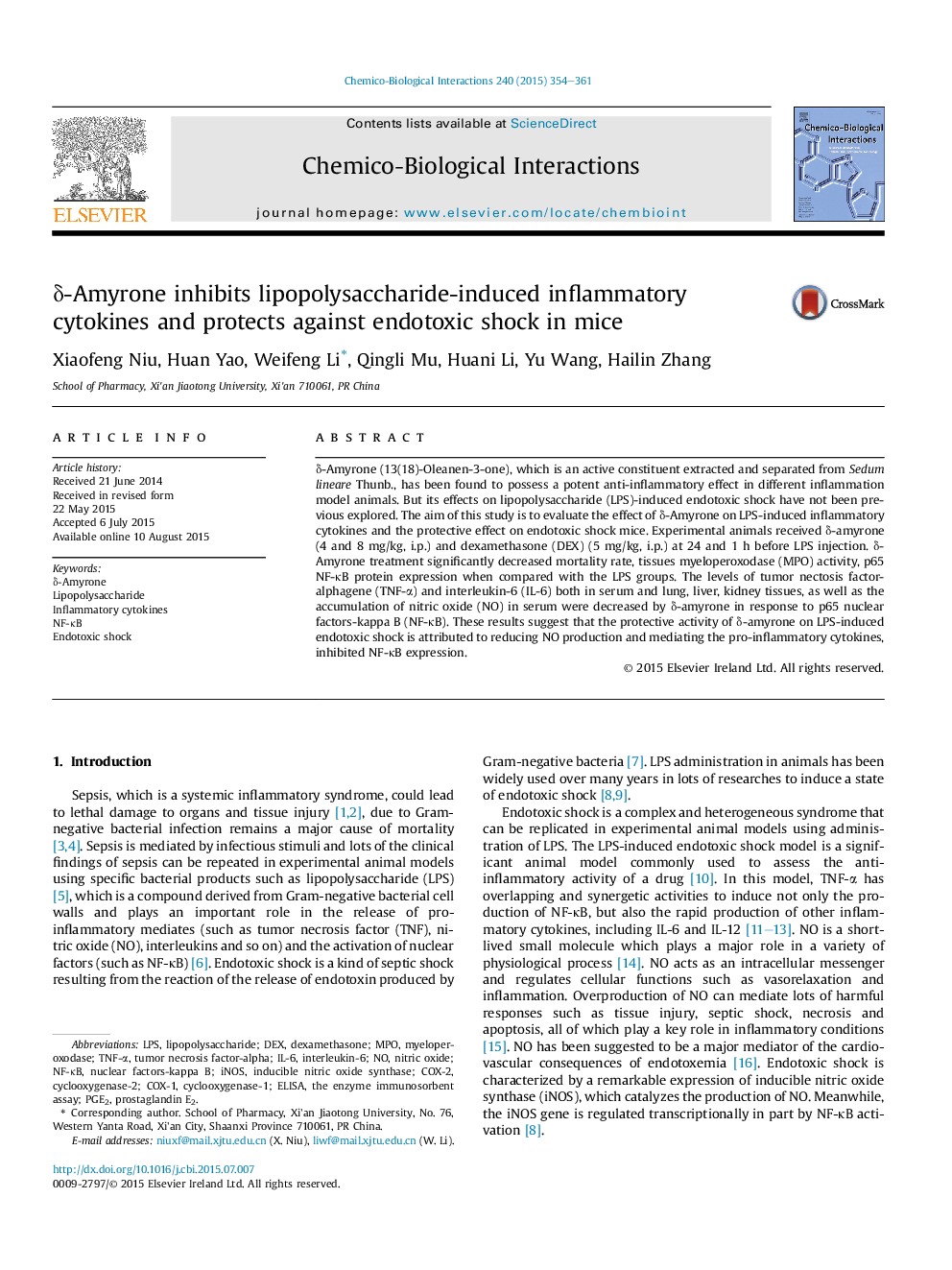| Article ID | Journal | Published Year | Pages | File Type |
|---|---|---|---|---|
| 2580126 | Chemico-Biological Interactions | 2015 | 8 Pages |
•δ-Amyrone increased mice survival rates in LPS-induced endotoxic shock.•δ-Amyrone decreased tissues MPO activity.•δ-Amyrone ameliorated TNF-α, IL-6 both in serum and lung, liver, kidney tissues as well as the accumulation NO in serum.•δ-Amyrone significantly diminished p65 NF-κB protein expression in lung, liver and kidney tissues.
δ-Amyrone (13(18)-Oleanen-3-one), which is an active constituent extracted and separated from Sedum lineare Thunb., has been found to possess a potent anti-inflammatory effect in different inflammation model animals. But its effects on lipopolysaccharide (LPS)-induced endotoxic shock have not been previous explored. The aim of this study is to evaluate the effect of δ-Amyrone on LPS-induced inflammatory cytokines and the protective effect on endotoxic shock mice. Experimental animals received δ-amyrone (4 and 8 mg/kg, i.p.) and dexamethasone (DEX) (5 mg/kg, i.p.) at 24 and 1 h before LPS injection. δ-Amyrone treatment significantly decreased mortality rate, tissues myeloperoxodase (MPO) activity, p65 NF-κB protein expression when compared with the LPS groups. The levels of tumor nectosis factor-alphagene (TNF-α) and interleukin-6 (IL-6) both in serum and lung, liver, kidney tissues, as well as the accumulation of nitric oxide (NO) in serum were decreased by δ-amyrone in response to p65 nuclear factors-kappa B (NF-κB). These results suggest that the protective activity of δ-amyrone on LPS-induced endotoxic shock is attributed to reducing NO production and mediating the pro-inflammatory cytokines, inhibited NF-κB expression.
Graphical abstractFigure optionsDownload full-size imageDownload as PowerPoint slide
